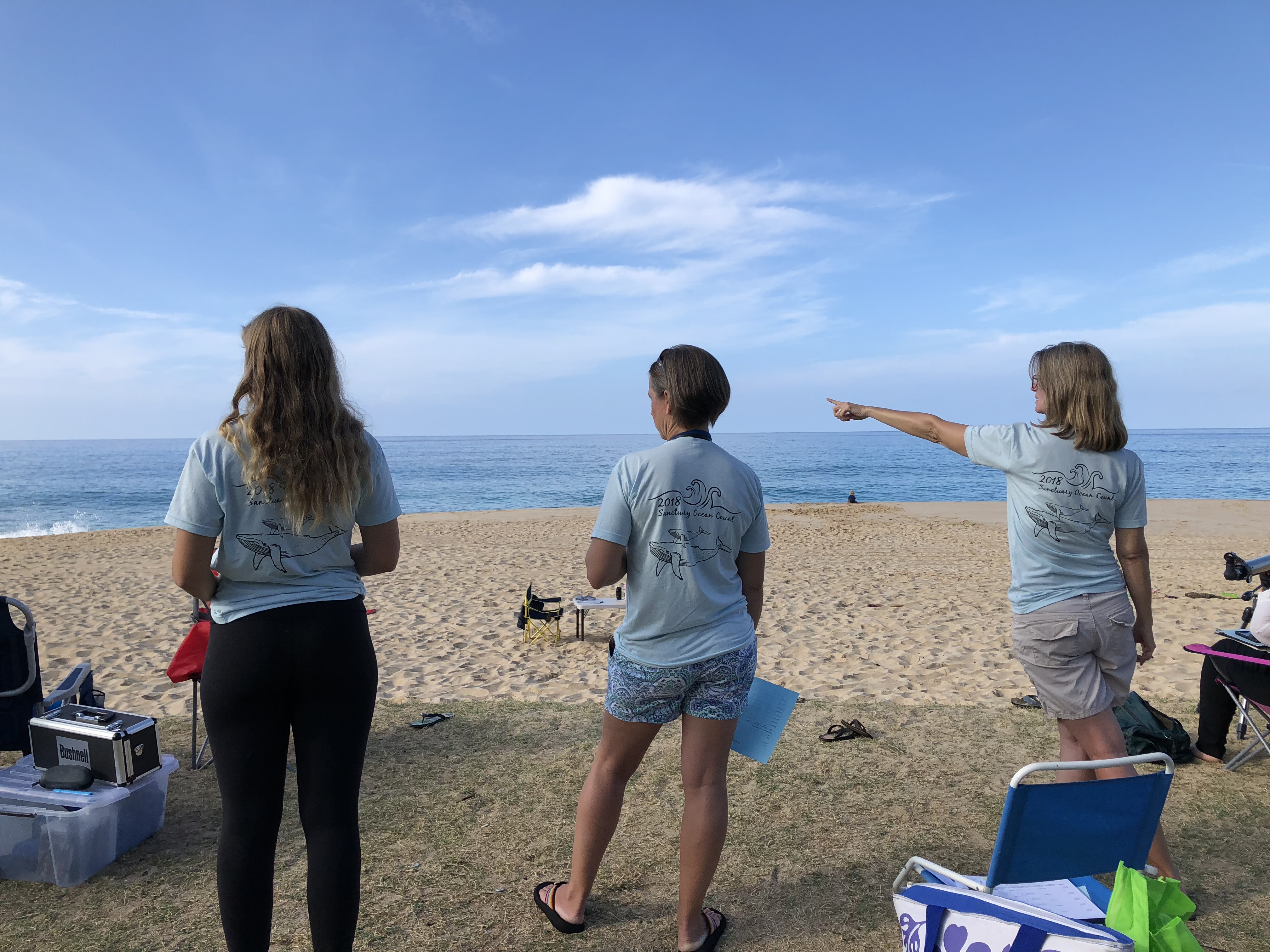Public Invited to Whale Count Research Events
Pacific Whale Foundation is inviting the public to participate in three “Great Whale Count” research events to help gauge Pacific humpback whale populations in Hawaiʻi.
The events are free and open to the public and will be on Jan. 26, Feb. 23, and Mar. 30 from 8 to 12 p.m.
The annual Great Whale Count brings volunteers together to count whales from shore as part of a long-term survey of humpback whales in Hawaiʻi. This 3-part event provides a snapshot of trends in relative abundance of whales and is one of the world’s longest-running citizen scientist projects.

Sanctuary Ocean Count 2018 volunteers look for whales off of Kaena Point State Park’s West Shore. Credit: Cindy Among-Serrao.
“The economic benefit of citizen science is incredibly important to researchers, who can only collect a small amount of data themselves and are often facing budgetary restrictions,” said Pacific Whale Foundation Chief Biologist Stephanie Stack, “By crowdsourcing data collection, researchers can learn much more about the natural environment than they can with individual effort.”
The Great Whale count dates take place on the same dates as Hawaiian Islands Humpback Whale National Marine Sanctuary’s annual Ocean Count, which are moving forward despite the federal government shutdown.
“There is scientific evidence that the peak of whale season is shifting earlier, towards January,” said Stack, “and we wanted to capture that information in our data set. We also wanted to better align our event with the Sanctuary Ocean Count, as we use very similar methodologies so our data can be compared, and their counts take place on Oʻahu, Kauaʻi, and the Big Island so we have a comprehensive snapshot of the trends across the Main Hawaiian Islands.”
“Fewer humpback whales are being observed in the main Hawaiian Islands in recent years, and we don’t know why,” said Kris Sarri, president and CEO of the National Marine Sanctuary Foundation.
While citizen science cannot replace dedicated research surveys, it greatly supplements knowledge and is an important tool for science outreach and for sharing important conservation work with the public.
Stack said, “Citizen science data can be used to inform management, resource allocation, policy, and planning. For example, the website Happy Whale has made collaboration between humpback whale researchers much easier than it was in the past. To compare ID catalogs between different organizations/regions used to be so time-consuming that researchers just didn’t bother. By using citizen scientists to do the comparisons, and submit photos from all over the world, there is a more collaborative approach to research and we are increasing our knowledge about the movement patterns of whales.”
Participants for Pacific Whale Foundation’s Great Whale Count must be registered in advance. Registration can be completed online at mauiwhalefestival.org/greatwhalecount.










